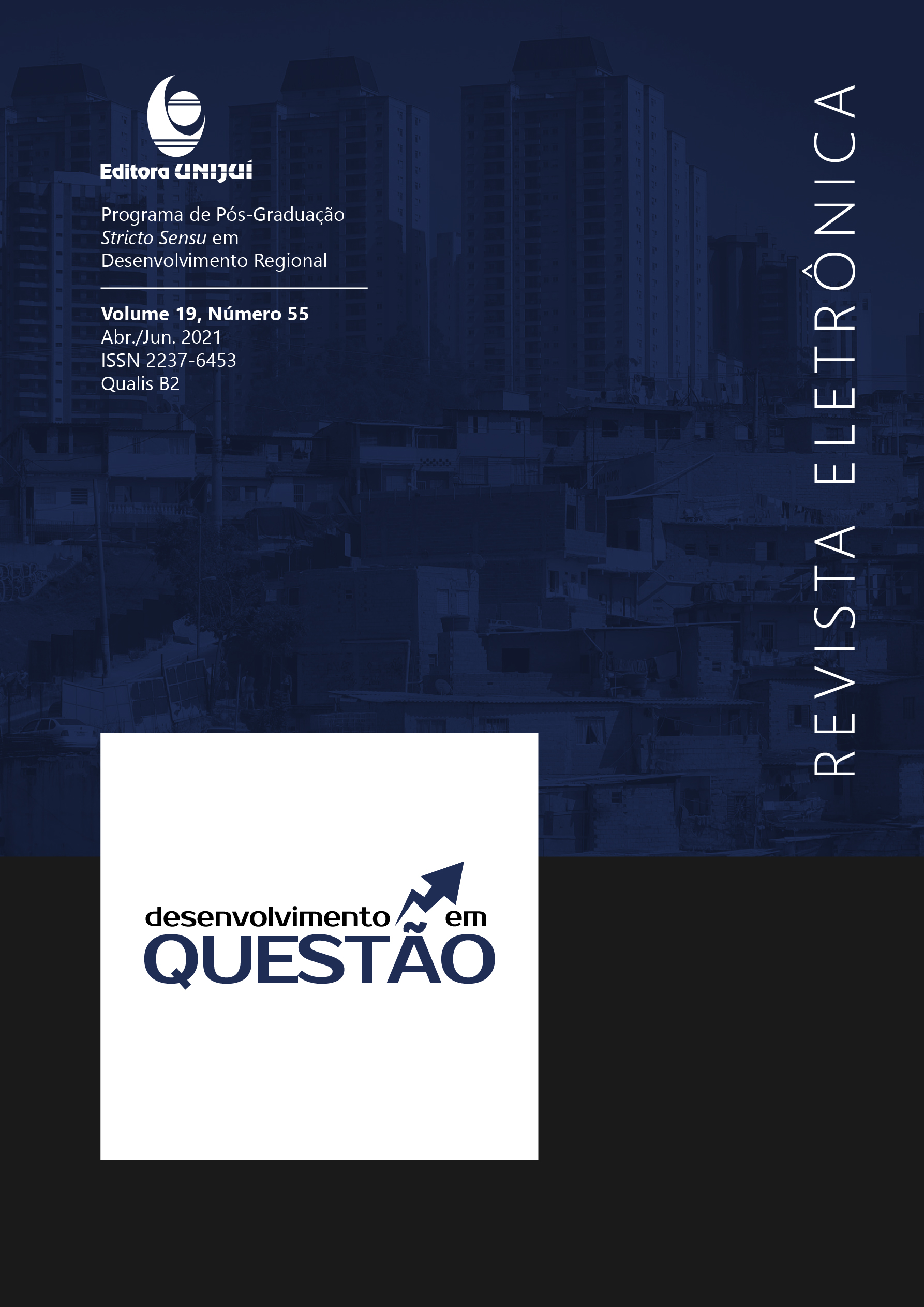O Programa Minha Casa Minha Vida sob a Perspectiva dos Beneficiários e Agente Operacional
MINHA CASA MINHA VIDA PROGRAM FROM THE PERSPECTIVE OF BENEFICIARIES AND OPERATIONAL AGENT
DOI:
https://doi.org/10.21527/2237-6453.2021.55.10215Keywords:
Minha Casa Minha Vida Program; Public policy; Social habitation; Public administrationAbstract
This article evaluates housing public policy actions from the Minha Casa Minha Vida Program (PMCMV) in the Leonel de Moura Brizola Housing in Santa Maria/RS involving beneficiaries, builder and operational agent in order to guide the program improvement in the process planning and public management. As for the method, the research was characterized as an exploratory-descriptive study with quantitative approach with the beneficiaries and qualitative with the construction company and operational agent. Data were collected through 144 questionnaires with PMCMV beneficiary families and interviews with the construction company and the operating agent. For data analysis, the content analysis technique was used for the qualitative approach and, with the use of descriptive statistics and factor analysis, the quantitative approach. Key findings show that beneficiaries are satisfied with home ownership and that PMCMV objectives meet the basic needs of beneficiaries. However, by specifically entering into the set of activities involving housing provision for the social interest population, a relevant aspect was that housing provision occurred in a location far from the central area, impacting some aspects of the residents' daily life. The research highlights the fact that the negative elements pointed out, that is, access to urban goods and services after the benefit, should not be understood as secondary effects of PMCMV, but due to the low state capacity to provide housing in central areas.
Downloads
Published
How to Cite
Issue
Section
License
By publishing in Revista Desenvolvimento em Questão, authors agree to the following terms:
All works are published under the Creative Commons Attribution 4.0 International License (CC BY 4.0), which allows:
Sharing — to copy and redistribute the material in any medium or format;
Adaptation — to remix, transform, and build upon the material for any purpose, even commercially.
These permissions are irrevocable, provided that the following terms are respected:
Attribution — authors must be properly credited, a link to the license must be provided, and any changes made must be indicated.
No additional restrictions — no legal or technological measures may be applied that legally restrict others from doing anything the license permits.
Notices:
The license does not apply to elements that are in the public domain or covered by legal exceptions.
The license does not grant all necessary rights for specific uses (e.g., image rights, privacy, or moral rights).
The journal is not responsible for the opinions expressed in the articles, which are the sole responsibility of the authors. The Editor, with the support of the Editorial Board, reserves the right to suggest or request modifications when necessary.
Only original scientific articles presenting research results of interest that have not been previously published or simultaneously submitted to another journal with the same purpose will be accepted.
Mentions of trademarks or specific products are intended solely for identification purposes and do not imply any promotional relationship by the authors or the journal.
License Agreement (for articles published from 2025 onward): Authors retain the copyright to their article and grant Revista Desenvolvimento em Questão the right of first publication.











